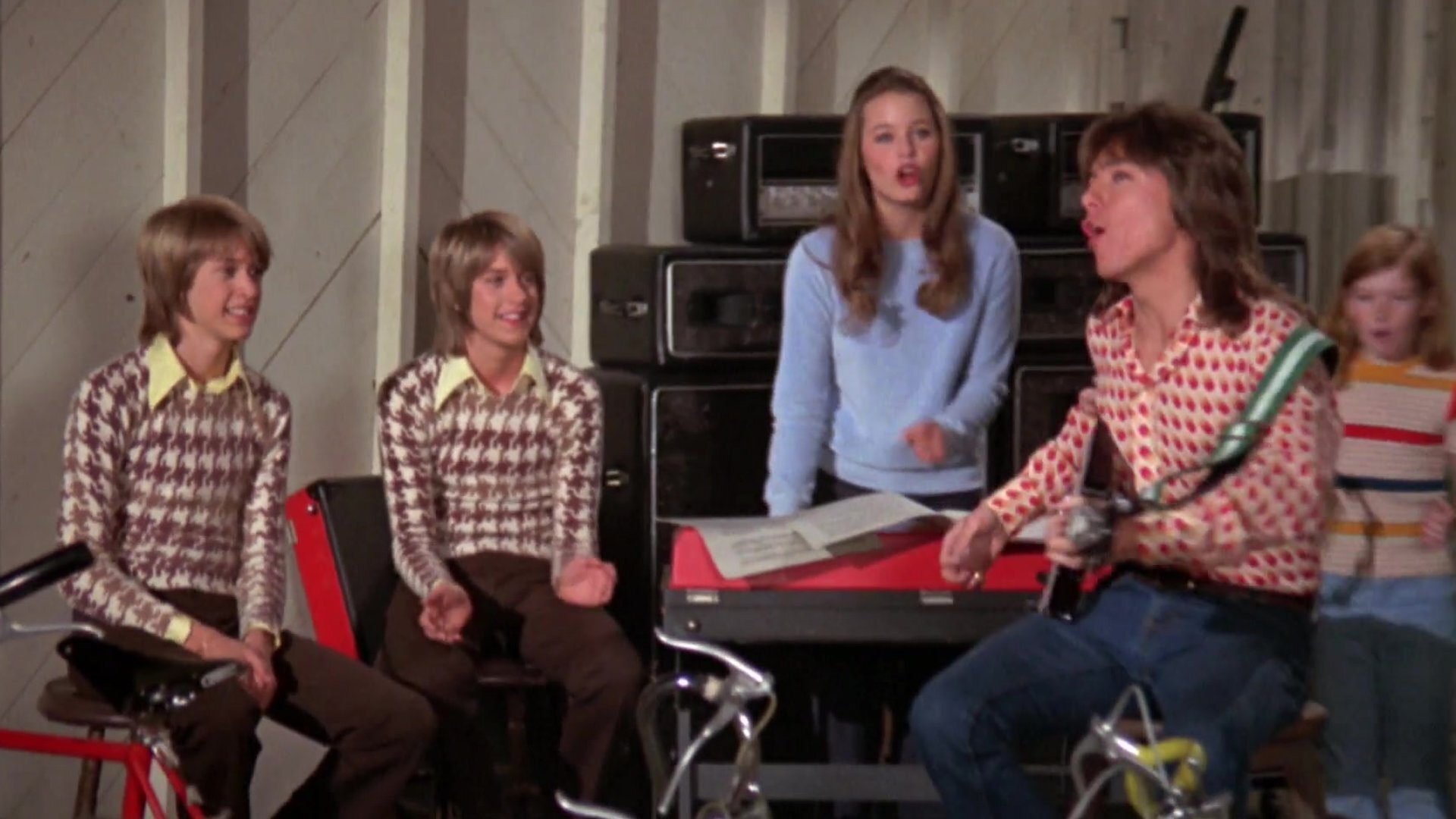
A number you never stop dialing in your head—first love captured at the end of a phone line.
Set the scene with the facts that matter. “Echo Valley 2-6809” is an album cut—no U.S. single, no chart ledger—tucked into the Partridges’ third LP, Sound Magazine (1971). Written by Rupert Holmes and Kathy Cooper, produced by Wes Farrell, it lands early in the running order (track 3) and clocks in at just about 3:05: long enough to tell you a whole story, short enough to play twice while the kettle comes to a boil. And yes, for those who like the craft behind the curtain, Sound Magazine is one of the Partridge sets built by the L.A. studio elite often shorthanded as the Wrecking Crew—clean rhythm, tasteful keys, space around the voice so the melody can do its work. It wasn’t pushed to radio stateside; it didn’t need to be to become beloved.
Now step into the song itself. Holmes, a born storyteller, builds with particulars: a remembered carnival, an old exchange-name telephone number, a promise that once felt sturdy enough to last past the summer. The title does half the writing—those digits feel like a relic you carry in a coat pocket for decades, a talisman you thumb when you’re brave enough to dial and certain you shouldn’t. Holmes’s calling card has always been this kind of piercing detail—a single object, a specific habit, a number you can’t forget—turning a private ache into something the rest of us recognize.
What you hear from the first bar is David Cassidy refusing to crowd the memory. He doesn’t belt; he leans—rounding vowels, holding back just enough breath that the ache feels lived-in rather than staged. The band answers with kindness: guitars that glint instead of jab, a piano line that finds you like kitchen light after midnight, backing voices that lift the refrain and disappear. It’s AM-pop discipline at its best: everything in proportion, everything in service of that phone on the table and the person who might be on the other end.
Television gave the song a face and a pin on the calendar. In Season 2, Episode 2 (“In 25 Words or Less,” aired September 24, 1971), the Partridges sing “Echo Valley 2-6809,” threading it into the plot the way the series often did at its most tender—letting a melody do the talking when real conversation gets tricky. For many of us who first met the tune in a living room’s blue glow, that performance is welded to the record: a reminder that some songs feel like scenes we’ve already lived.
Part of the track’s quiet magic is that it honors ordinary courage. The narrator doesn’t grandstand; he dials. He lets the risk be small and human. The arrangement keeps faith with that scale—no drum-swell theatrics, just a steady pulse like a nervous thumb tapping the desk while you wait for the click at the other end. That’s why older listeners lean in. The drama here isn’t catastrophe, it’s contact—the hope that the past is close enough to touch if you can remember the number.
Because this is The Partridge Family, the workmanship hides in plain sight. The same studio circle that powered the big hits keeps this one unassuming and alive, and Sound Magazine—the LP that shelters it—has the shine of a group at full flight: Tony Romeo hooks on one side of the sleeve, Rupert Holmes and Kathy Cooper narratives on the other, Farrell’s production gluing it all together. Years later, when reissue labels took stock, “Echo Valley” was spotlighted as one of the album’s sleeper jewels—proof that fan favorites don’t always need a catalog number on a 45.
The song’s afterlife says as much. It threads through compilations (you’ll spot it on At Home with Their Greatest Hits), turns up in setlists when Cassidy wanted to warm a room with memory, and even sneaks through the side door of other artists’ releases (it rode the U.S. B-side of Wayne Newton’s “Daddy Don’t You Walk So Fast” in 1972). If a tune keeps resurfacing where it wasn’t meant to headline, it’s because listeners have decided it’s theirs.
Listen tonight with the lights low and you’ll hear why. “Echo Valley 2-6809” isn’t about the technology of its era; it’s about the gesture that survives all eras: calling the past to see whether it will answer. That’s why the number in the title still pricks the skin like a remembered address. The band keeps the streetlamps steady, the singer keeps his voice kind, and for three minutes you get to believe that connection is a matter of will—and that somewhere, if you’re brave enough to dial, there’s still a voice that knows your name.
Gawd. Waaay too long. Too many references to the phone number & for some reason, the kitchen. Less is more. You go back & forth regurgitating the same thing about the music tracks & vocals, etc. With the tempo, how could Cassidy have sung it harder if he wanted to? Listen, this is my favorite song of all time (& while working with David, I told him this & he agreed it was his favorite song too) so I agree with you that this is a phenomenal song. I just start dozing off & rolling my eyes when you repeat yourself too much & don’t add anything new to what you’ve already written. You haven’t even said much about the lyrics themselves. I’ve already pointed out what makes them so special on numerous music blogs so I won’t share it with you here.